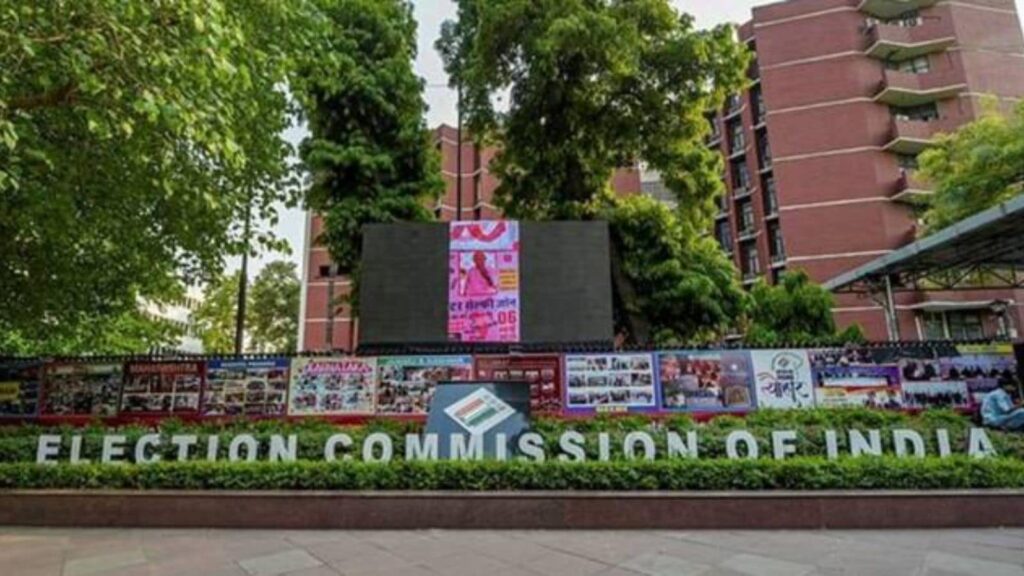Officials from Assam have told the Election Commission (EC) that since it is the only state to have already carried out the exercise of preparing the National Register of Citizens (NRC), this should be factored in whenever the poll panel frames its timelines and decides the list of eligibility documents for the state’s special intensive revision (SIR) of electoral rolls, The Indian Express has learned.
Sources in the Assam government said that since the EC is also looking at the citizenship aspect to determine eligibility for inclusion in the electoral roll — and given that Assam has already undertaken a citizenship verification exercise — the NRC, once published, can serve as one of the admissible documents for the SIR. Hence the state’s request.
This comes even as Opposition parties have alleged that the Bihar SIR has become a de facto citizenship-verifying exercise – “NRC through the backdoor” – and that’s not within the purview of the poll panel.
Assam’s request, learned to have been made after the Commission’s announcement last month of a nationwide intensive revision of electoral rolls starting with Bihar, if accepted, could effectively mean a delay in the state’s SIR.
This is because the Assam NRC — a Supreme Court-monitored exercise meant to resolve decades of demographic anxieties in the state — remains stuck in limbo.
Since the publication of the draft NRC in 2019, which excluded 19.6 lakh individuals from 3.3 crore applicants, the Registrar General of India is yet to notify it and both the BJP-led state governments since then have maintained that they do not find it acceptable in its current form.
The objective of the NRC in Assam was to identify Indian citizens and distinguish them from illegal migrants in a state that has witnessed years of protests and political churn over undocumented migration.
However, Chief Minister Himanta Biswa Sarma is among its critics. The Assam government has maintained that the inclusions and exclusions in it are erroneous, and that excludes “indigenous people” while including large numbers of “foreigners” and that the number of people who had entered the state illegally after March 24, 1974 – the cut-off date for the NRC – is far higher than 19 lakh.
The question of reverification had been raised by the Central and state government even before the 2019 NRC was finalised but had been denied by the Supreme Court.
On July 23, 2019, the Supreme Court bench of Chief Justice Ranjan Gogoi and Justice Rohinton Fali Nariman had observed that NRC coordinator Prateek Hajela had submitted that 27% reverification had already been done during the course of consideration and adjudication of the claims and that the court did not find it necessary for further sample reverification.
In a special Assembly session held last month, CM Sarma said that the state government is still in the process of seeking 20% reverification of the list in districts bordering Bangladesh and 10% in the rest of the districts.
“The NRC is about to be released. It will be out in a month or two, most likely by October,” a source said, adding: “We feel the NRC data, as it has been prepared after verification — and with reverification also in process — will be a perfect document for proving citizenship. It can be one of the documents (to be considered for the intensive revision).”
A query sent to the Commission on whether it has considered Assam’s request or taken a decision on the matter did not elicit a response. When contacted, Sarma told this newspaper that there has been no “correspondence” with the EC on this issue.
The Election Commission’s decision to begin an intensive revision of the electoral roll from Bihar has sparked political opposition in the state, with some parties even moving the Supreme Court against the exercise.
The trigger: the list of documents the Commission has asked voters — those registered in Bihar after 2003 — to furnish to prove their eligibility, specifically age and citizenship, to remain on the rolls.
The year 2003 has been picked as the cut-off because that was when the last intensive revision took place in Bihar. So, anyone who featured in the 2003 electoral roll is presumed to be a citizen, and is therefore eligible for inclusion in the new roll now being prepared. The petitioners in the Supreme Court have questioned the EC’s power to verify the citizenship of voters, the importance of due process in such an exercise, and the timing of the revision itself.
The Supreme Court eventually declined to restrain the EC from proceeding with its intensive revision of electoral rolls in poll-bound Bihar but suggested that the poll panel also consider Aadhaar, voter ID, and ration cards for the purpose of updating the rolls.
This is in addition to the 11 documents listed by ECI which include any identity card or pension payment order issued to a regular employee or pensioner of any Central or State Government/PSU; any identity card, certificate, or document issued by Government/Local Authorities, Banks, Post Office, LIC, or PSU prior to July 1, 1987; a birth certificate issued by the competent authority; passport; matriculation or educational certificate issued by recognised boards or universities; permanent residence certificate issued by the competent state authority; forest rights certificate; OBC, SC, ST, or any caste certificate issued by the competent authority; the National Register of Citizens (where applicable); family register; and land or house allotment certificate issued by the government.

